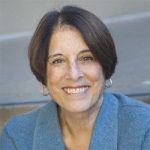Leading Large-Scale Social Change in Arts & Culture
As the line between organizations and social movements continues to blur, leaders from each sphere increasingly stand to learn from one another. Leading Large Scale Social Change in Arts & Culture is a two-day interdisciplinary seminar on February 27-28, 2019 in San Francisco that builds an understanding of the key levers available to those seeking to create major social change. Together will also seek to understand how organizations interact with social movements and how we as individuals can continue to support and enact large-scale social change.

01.
You want…
02.
You’ll gain…
03.
You’ll join…
Details At-a-Glance
Dates: February 27-28, 2019
Location: The Open Square at Futures Without Violence
San Francisco, CA (located in The Presidio)
Tuition: Thanks to generous underwriting by The Kresge Foundation, the fee for this two-day seminar is $150 per person.
Objectives
- Understand key levers used by social movements around the world and throughout history and apply them to current issues in the Bay Area
- Analyze the uses and limitations of different instruments for large-scale social change
- Identify challenges facing current social change movements locally and develop smart strategies to help them move forward
- Provide participants with a toolkit of frameworks to take beyond the classroom
Curriculum
In the seminar we will explore the following:
- The levers for leading social change, which include: Finance and Commerce, Law, Technology, Grassroots Organizing and Networks, Structure and Leadership, Communications, including Framing and the Media
- The role of context and external threats, including violence
- Reform vs. Revolution: the spectrum of social change and the role of disruption
- Key phases and life cycle of social movements
- Theory of Change: strategy, goals, and tactics
- The roles of business, government, and the social sector in social movements
- Leadership of social change
Participants will receive videos in advance of the session in order to prime them for collaborative learning, discussion and application.
Outcomes
Outcomes included both collaborative efforts and individual actions. Many leaders told us that they were better able to shape their personal narrative used to invite others into their visions for change. Collectively, a subset of the leaders formed a working group on racial equity which collaborated for a year to craft racial equity principles they recently shared with a broader group of NAS alumni at the NAS Summit and intend to adopt within their own organizations.
Meet Our Faculty
